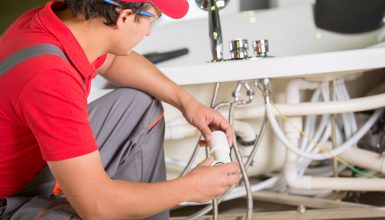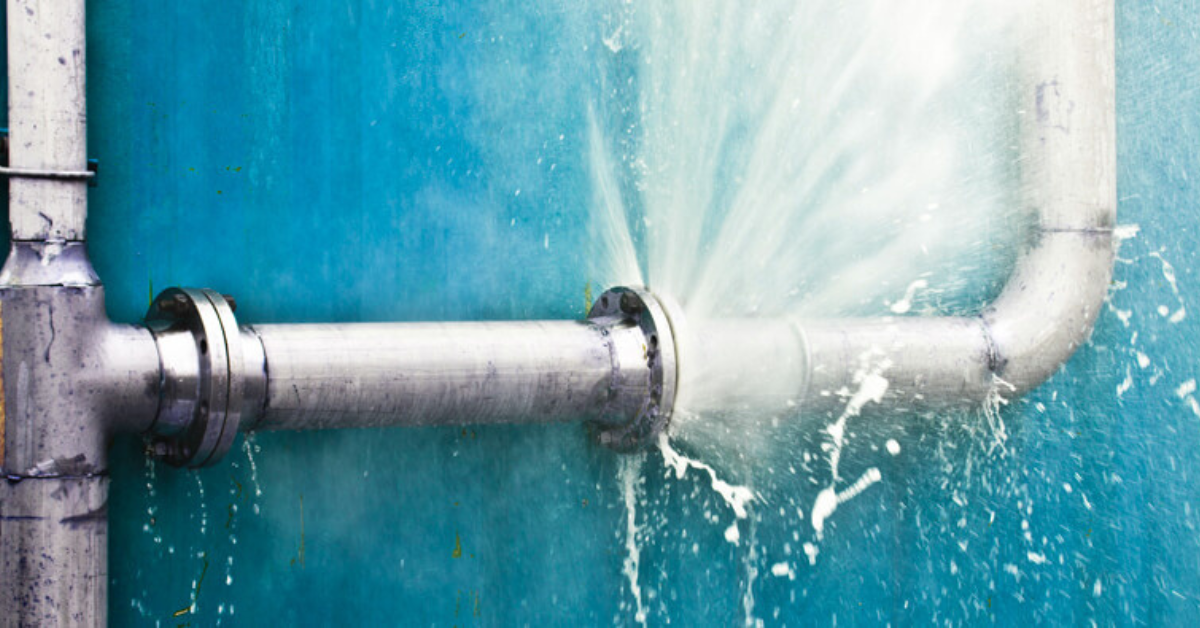This post in the next paragraphs in relation to Low Water Pressure in the House? is exceedingly attention-grabbing. Read it for your own benefit and see what you think of it.

Low tide stress in your house can be a frustrating problem, influencing every little thing from bathing to cleaning dishes. If you're experiencing weak water flow, there are several possible causes and remedies to check out. In this overview, we'll talk about common reasons for low water stress and practical steps to address the problem efficiently.
Intro to Low Tide Stress
Low water pressure occurs when the flow of water from your faucets, showers, and various other components is weak than usual. This can make day-to-day tasks a lot more difficult and less efficient. Comprehending the reasons for low water stress is vital to discovering the right solution.
Common Reasons For Low Water Stress
Pipeline Obstructions
Gradually, pipelines can become obstructed with natural resource, debris, or debris, restricting the circulation of water. This is a typical concern in older homes with galvanized steel pipes.
Deterioration
Deterioration within pipes can result in leaks and reduced water pressure. Rust buildup can restrict water circulation, particularly in aging plumbing systems.
Faulty Stress Regulators
Stress regulators are accountable for preserving regular water pressure in your house. If they malfunction, it can cause low water stress or irregular circulation throughout your home.
Local Supply Of Water Issues
Often, the trouble exists outside your home. Metropolitan water issues, such as main line leakages or upkeep work, can momentarily reduce water pressure in your area.
Exactly How to Detect Low Water Stress
Checking Faucets and Components
Start by testing the water pressure at various taps and components throughout your home. If the concern is isolated to details areas, it might show local issues.
Evaluating Pipelines
Inspect noticeable pipes for signs of leaks, corrosion, or clogs. Pay attention to any type of uncommon noises, such as knocking or rattling pipelines, which might indicate issues within the plumbing system.
Consulting with a Plumber
If you're not able to identify the root cause of low tide stress, take into consideration working with a specialist plumber to perform a detailed evaluation. They can determine underlying issues and advise ideal solutions.
DIY Solutions to Deal With Low Tide Stress
Cleaning Aerators and Showerheads
Natural resources can collect in aerators and showerheads, reducing water circulation. Remove and clean up these parts regularly to improve water stress.
Flushing Water Heater
Sediment buildup in the water heater can limit circulation and decrease effectiveness. Purging the tank regularly assists eliminate sediment and preserve ideal performance.
Inspecting Pressure Regulator
Ensure that the pressure regulator is working appropriately. Changing or changing the regulator can assist bring back proper water pressure throughout your home.
Clearing Up Clogs in Pipes
For small obstructions, attempt utilizing a plumbing serpent or chemical drainpipe cleaner to clear blockages in pipelines. Be cautious when making use of chemicals and comply with security guidelines.
When to Call a Professional Plumber
If do it yourself efforts fail to settle the problem or if you believe considerable plumbing problems, it's finest to seek aid from an accredited plumber. They have the experience and devices to resolve complicated problems safely and successfully.
Safety Nets to Maintain Water Stress
Routine Upkeep
Set up regular maintenance for your plumbing system to prevent problems such as corrosion, leaks, and clogs. Resolving small issues early can help stay clear of even more substantial fixings later on.
Installing a Stress Booster
Consider installing a stress booster pump to improve water stress in locations with constantly reduced circulation. This can be specifically helpful for multi-story homes or residential properties with high-demand fixtures.
Monitoring Water Usage
Bear in mind water usage practices and prevent overtaxing the plumbing system. Basic modifications, such as shocking showers and laundry tons, can aid keep ample water pressure.
Conclusion
Taking care of low tide stress can be discouraging, however recognizing the underlying reasons and carrying out ideal services can restore ideal circulation throughout your home. Whether it's cleaning aerators, checking pipelines, or speaking with a plumber, taking aggressive actions can make certain a steady supply of water for your daily requirements.
How to Fix Low Water Pressure In Your Home
Municipal Water Supply Issues
Scheduled maintenance, high demand, and water main breaks are all potential causes for low water pressure within a city or county’s water lines. While there’s not much you can do to personally fix a problem with your city or county’s water supply system, you can play a big role in documenting the issue and alerting those who can.
How to fix it:
Ask your neighbors if they are experiencing any issues with low water pressure. If multiple homes are affected, it’s likely related to the city’s water line.
Contact the local Water Authority to see if there is any maintenance taking place that might be affecting your supply. Also let them know of your specific issues. If other homeowners report the same issues, they’ll know that there could be a larger issue to look into.
Faulty Fixtures
A damaged or clogged shower head, faucet or appliance is the first thing we’d suggest checking, especially if low water pressure appears to be isolated to a specific area of your home.
How to fix it:
First, turn off the main water supply to your home.
Check the affected appliances for build-up or debris. In the case of a faucet, you can simply unscrew the aerator at the tip of the faucet. Showerheads should be fully detached from the water pipe.
While the appliances are detached, you may want to check the water supply to determine if the fixtures were in fact the issue.
To clean, soak the showerhead or aerator in vinegar and brush off any visible debris.
Reattach the fixtures and check the water pressure again. If it is still low, there is likely a deeper issue at hand, which can be determined by a professional plumber.
Pipe Obstructions
Mineral deposits, rust or other debris within water pipes can lead to blockages or corrosion over time.
How to fix it:
When you think of a clog, you probably think of a drain clog. While there are many DIY solutions to clearing a drain, clogs in a water pipe will almost always require the help of a professional plumber. A plumber will be able to locate the affected pipe and clean out any debris or mineral deposit buildup. In severe cases, the pipe may need to be replaced. Your plumber might also recommend a water softening system to remove the minerals from your home’s water supply that can contribute to pipe blockages over time.
Plumbing Leak
Undetected water line leaks can divert water away from your residential pipes, reducing the water pressure in your fixtures.
How to fix it:
Check your water meter by turning off all water sources and monitoring the meter for any movement, which could be a clear indicator of a potential leak.
Check all visible pipes for signs of leaking, including water stains, active dripping or damp spots around the pipe.
Inspect fixtures, including faucets and showerheads, for any drips.
Test the pressure but recording the pressure with the main water valve shut off. Leave off for a few hours and test again. A significant drop in pressure is a clear sign of a leak.
https://kiddcoplumbing.com/plumbing-blog/how-to-fix-low-water-pressure/

How to Fix Low Water Pressure In Your Home
Municipal Water Supply Issues
Scheduled maintenance, high demand, and water main breaks are all potential causes for low water pressure within a city or county’s water lines. While there’s not much you can do to personally fix a problem with your city or county’s water supply system, you can play a big role in documenting the issue and alerting those who can.
How to fix it:
Faulty Fixtures
A damaged or clogged shower head, faucet or appliance is the first thing we’d suggest checking, especially if low water pressure appears to be isolated to a specific area of your home.
How to fix it:
Pipe Obstructions
Mineral deposits, rust or other debris within water pipes can lead to blockages or corrosion over time.
How to fix it:
When you think of a clog, you probably think of a drain clog. While there are many DIY solutions to clearing a drain, clogs in a water pipe will almost always require the help of a professional plumber. A plumber will be able to locate the affected pipe and clean out any debris or mineral deposit buildup. In severe cases, the pipe may need to be replaced. Your plumber might also recommend a water softening system to remove the minerals from your home’s water supply that can contribute to pipe blockages over time.
Plumbing Leak
Undetected water line leaks can divert water away from your residential pipes, reducing the water pressure in your fixtures.
How to fix it:
https://kiddcoplumbing.com/plumbing-blog/how-to-fix-low-water-pressure/
I am just very fascinated with 4 Ways to Troubleshoot Low Water Pressure and I am hoping you enjoyed my post. Enjoyed our blog? Please share it. Let another person locate it. Bless you for your time. Kindly come by our blog back soon.
Book